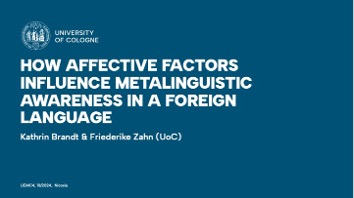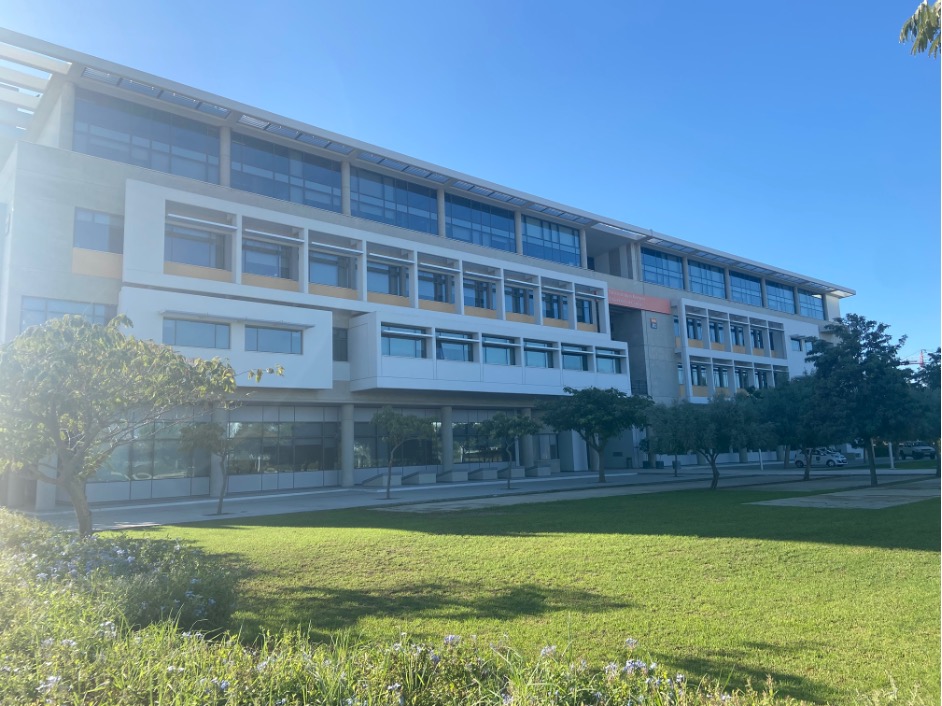Conference participation LIEMC4
On 19 and 20 October 2024, Dr Kathrin Brandt and Friederike Zahn took part in the international conference Language, Identity and Education in Multilingual Contexts (LIEMC4) at the University of Cyprus. In their presentation entitled How Affective Factors Influence Metalinguistic Awareness in a Foreign Language, they presented the results of a university-wide survey that was designed, coordinated and analysed by the language lab team.
The survey was conducted online in the summer semester of 2024 and was aimed at all students at the University of Cologne who were planning a stay abroad - whether as part of an exchange semester or an internship - within or outside Europe. In addition to multi-step grammaticality judgements on English structures, which were intended to measure the degree of metalinguistic awareness of the participants, numerous extra-linguistic factors were surveyed. The aim was to correlate metalinguistic awareness with aspects such as language competence, (further) foreign language skills, individual learner biographies as well as motivation and objectives for the stay abroad. In line with relevant specialist literature, this study also showed that a high level of language competence - in this case in English -, knowledge of other foreign languages and a high level of self-motivation correlate positively with the degree of linguistic awareness.
The study also revealed that traditional language courses are still very popular when preparing for a stay abroad. At the same time, however, students are increasingly turning to digital and asynchronous programmes and materials, particularly due to limited time and capacity resources. Language learning apps are the most popular asynchronous offering, but are often not used in the long term due to a lack of guidance and feedback. To counteract this, the language lab team is currently working on preparing the language learning materials available in the media library specifically for autonomous learning and exam preparation. In addition, almost all participants stated that they actively consume the target language via social media, online video and podcast portals and streaming services. In order to further support students in this area, the language lab is continuously expanding its internal link list in collaboration with teachers of various foreign languages, which refers to helpful resources organised by language.

